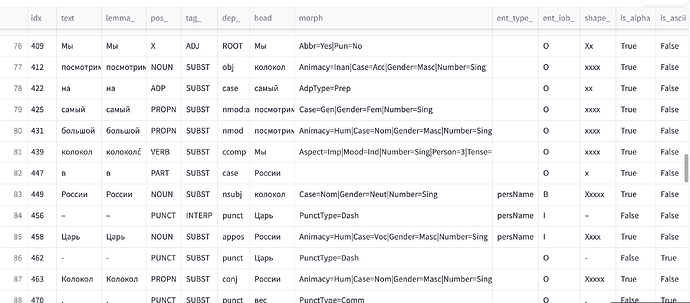Heya,
Interesting conversation about Russian, thanks and about the usefulness of learning some grammar. I think I agree with Steve Kaufman that we as adults often tend to over concentrate on grammar study and not do enough natural language immersion through reading and listening to the language. I like his idea that we should do a little grammar once we have some fair amount of exposure to the language. Think I have an interesting idea for a tool to help with that. To help with recognising the grammar patterns in the language we have already been exposed to.
I am learning Polish that also has quite a complex case system. Not sure if it is more complex than Russian but some people say that it is one of the most difficult languages in the world for an English speaker to learn! Partly I feel because it is badly taught. ![]() (It is very common for some reason for lessons to be all about grammar and for that grammar to be explained in Polish even for beginner students who all share English comprehension, for example.)
(It is very common for some reason for lessons to be all about grammar and for that grammar to be explained in Polish even for beginner students who all share English comprehension, for example.)
Anyway since I am feeling the same need to organise my vocabulary efforts as you guys I am building a tool to do so.
My ideas is to download all my content from lingq (built a tool to do this yesterday, see my post in this forum Export your lingq text content as a tree of files to Google drive ) and use the spaCy natural language processing tool to analyse the grammar in my content.
Here I have set up a demo of use of the spacy python library, my app is set up to analyse now 25 languages including Russian. : https://spacy-pl.streamlit.app/
spaCy is a very capable app that can analyse the grammar of a sentence and understand the grammatical structure of that sentence.
I am thinking that I want to use this software so we can build a catalogue of all the sentences in our lingq content so that we can then for example pull up a list of sentences with nouns in them that are of the instrumental case, that are male nouns for example. So that we can have a catalogue of sentences that we are familiar with that we can group by grammatical features.
I think this will be a very powerful way to help us recognise the patterns of the grammatical feature we want to concentrate on.
So for me for Polish, as the whim takes me I might review the following from my lingq content:
- all the sentences with different present forms of the być verb “to be”. In all the different declensions.
- If these is a particular declension I want to concentrate, for example third person plural, on then I can look at just examples in my lingq content of those forms of the verb.
- I might then move on to reviewing past tense uses of the same verb, etc.
- Cases are tough in Polish. I might move through looking at the cases methodically. Grabbing all sentence examples with nouns in the nominative case to start with. Get more familiar with how to identify masculine, feminine and neutral nouns with all the exceptions to the rules, etc. Get familiar with examples of plural nouns in the nominative.
- Move on to other noun cases.
- Grab examples of adjectives in those different cases, get familiar with adjective endings changing, what the patterns are. Review common exceptions.
I am thinking this will be a useful activity to do once or twice a week in addition to my daily reading and listening.

